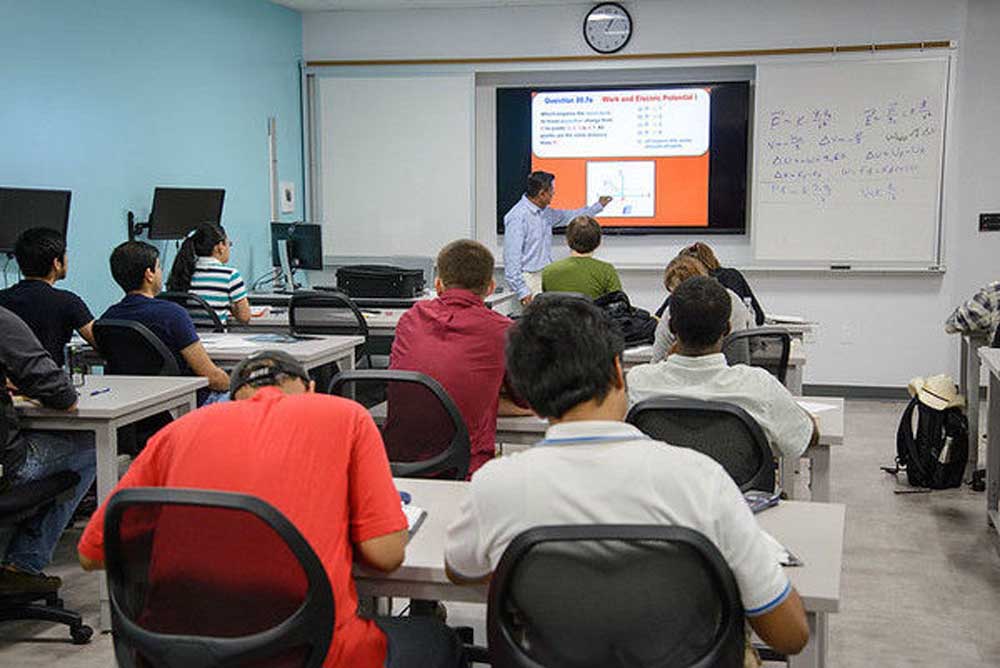UT Tyler creates engineering center in Houston
Published 8:41 pm Monday, May 4, 2015
The Houston Engineering Center of The University of Texas at Tyler has flourished in the two years since opening. Enrollment has grown, and the first 25 graduates were awarded their baccalaureate degrees on Saturday.
Trending
“The Houston Engineering Center has a strong potential for growth, and we have already seen a great demand from students,” UT Tyler President Dr. Rodney H. Mabry said.
A shortage of engineers in the Houston area and the need for an engineering program where community college students could go on to complete their baccalaureate degrees led to the creation of the center, according to UT Tyler Dean of Engineering Dr. James K. Nelson said.
“Now we are offering in Houston the ability to complete the same engineering degrees that students can complete in Tyler,” Nelson said.
The program offers courses in the junior and senior years of studies in electrical, mechanical and civil engineering. The center does not offer any lower division courses.
The center exceeded a target of 50 students enrolled each semester the first year, and this spring has 161 enrolled.
“Our target for the fall semester is 250 students,” Nelson said.
Trending
The center meets the needs of many students who are Houston-bound because of financial issues, family issues, work or any number of other reasons they cannot travel to other engineering programs, Nelson said.
An associate degree is a pre-requisite for enrolling in UT Tyler’s Houston Engineering Center.
UT Tyler partnered with Houston Community College to house the engineering center and with other Houston area community colleges that provide the lower level training. Students can get pre-engineering courses such as calculus, chemistry, science and core curriculum courses at Houston community colleges.
The cost of getting an engineering degree is significantly less since students begin at a community college. They can complete their baccalaureate degree and community college studies for approximately $20,000, “which is about half the cost of some of the other options,” Nelson said.
Starting salaries for engineers “run a little over $60,000. That is a phenomenal return on the investment,” he said.
Houston resident David Le, 18, said in a phone interview the location of Houston Engineering Center was a major reason for his decision to continue his studies there after finishing his associate degree in May at Houston Community College.
Being able to live at home and save money on housing was a big factor in his decision.
“The total cost is very affordable. I’m trying to graduate without any debt,” Le said.
Le is looking forward to attending class with people he already knows and expects professors will be open to talking with him because of the small setting.
Nelson, who chairs the engineering tuning task force for the Texas Higher Education Coordinating Board, said it was evident that student who began at a community college in the Houston area did not have a good pathway to an engineering degree.
“We kept hearing about courses not transferring, students having to repeat credit hours, a number of different things. We (UT Tyler officials) looked at that and felt we can solve that problem or make a serious dent into the problem, which I think we’ve done,” Nelson said.
“We are able to lay out lower division course work students should be completing at the community colleges, work with our community college partners along with other four-year institutions to establish the associate of science in engineering science program that community colleges can offer, which facilitates moving into an engineering program to finish,” Nelson said.
They take engineering courses, engineering design courses and additional advanced level engineering with the Houston Engineering Center.
The university leases 21,000 square feet of space from Houston Community College for engineering faculty, classroom space, laboratory space, a place for student Capstone design projects and meeting space for faculty with students.
The center started offering classes in fall 2013, offering electrical and mechanical engineering courses. It added civil engineering courses in fall 2014.
Next year, it will start to offer a certificate program in engineering administration, a graduate level certificate program for working engineers looking to take the next career step, Nelson said.
“We are doing everything we can to continue growing enrollment in Tyler, as well as growing enrollment on the campus in Houston,” he said.
One of the strengths is that engineering courses offered in Houston and engineering courses in Tyler are a single program, not separate programs, Nelson said.
“Offerings in Houston and offerings in Tyler are all coordinated by the (engineering) department, so there is a single focus, a single quality measure, regardless of where they study,” he said.
Students who graduate from UT Tyler engineering programs in Houston and Tyler graduate from the same ABET accredited engineering program. Graduates in both places receive a bachelor of science degree in civil, mechanical or electrical engineering from UT Tyler.
“The faculty reports to the chairs. The chairs are responsible for all the students regardless of where they are studying,” he said. “I think that single focus is what helps us ensure that we are meeting the needs of the students and that we do have quality programs that are being offered.”
This year, the Houston Engineering Center has four permanent faculty based in Houston, an interim director and several adjunct faculty.
“Next year we will be adding additional faculty in all the disciplines,” Nelson said







